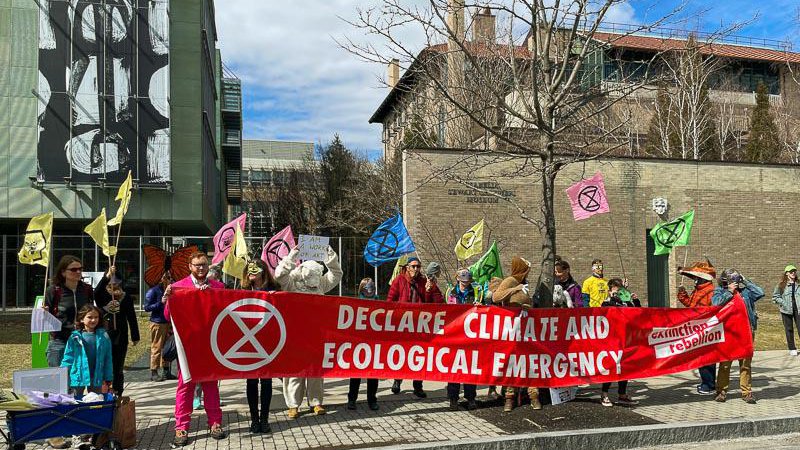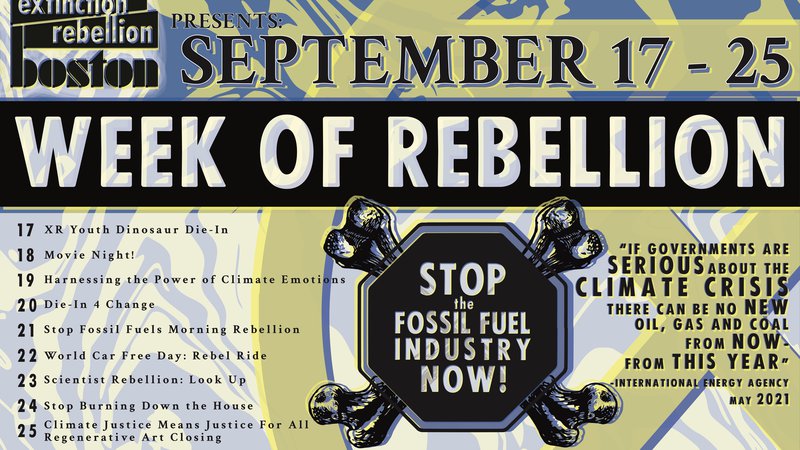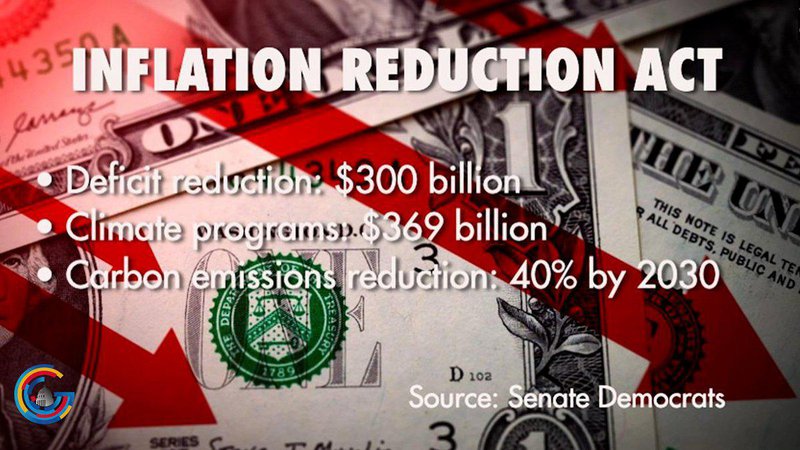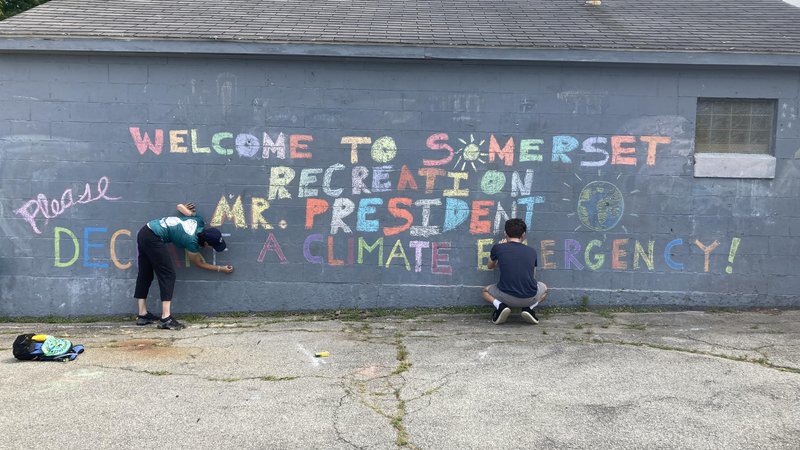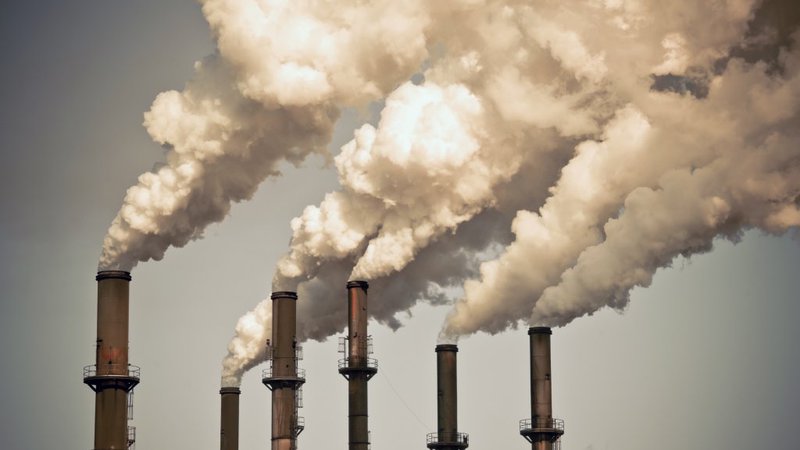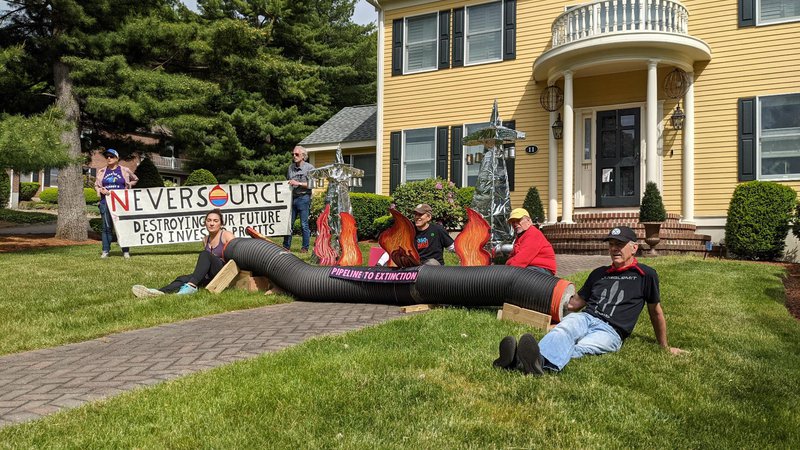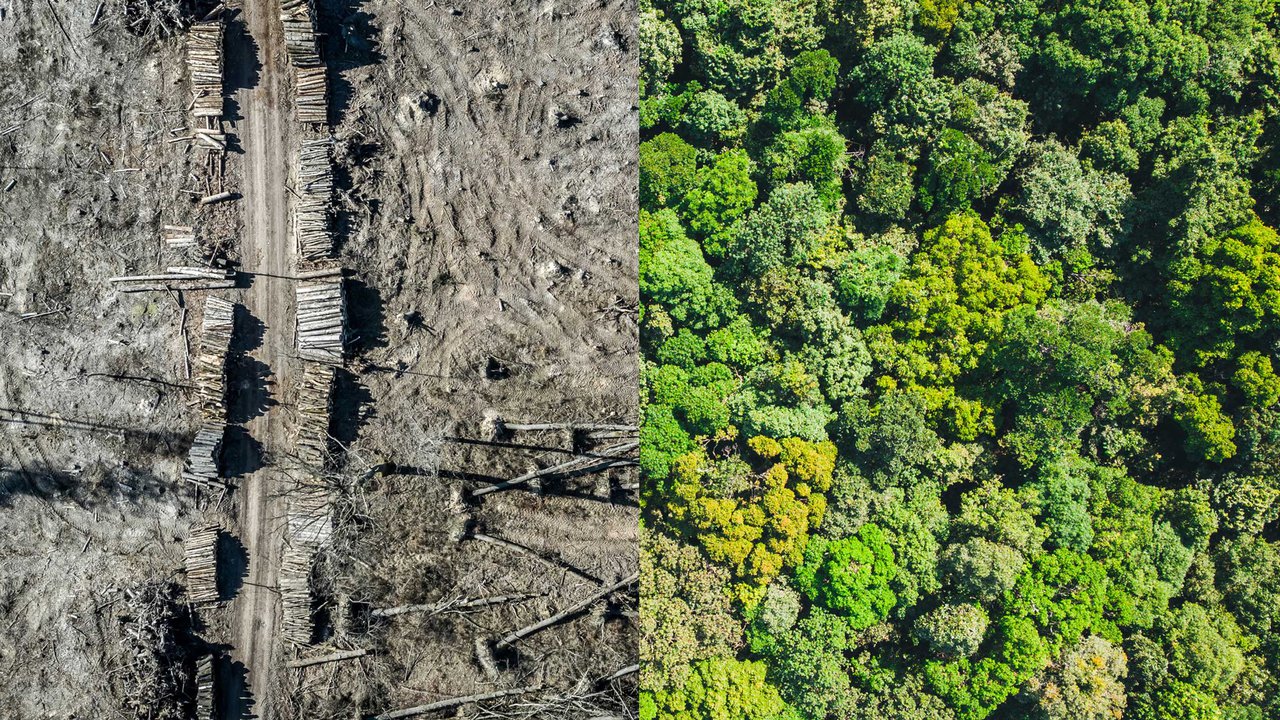
Protecting biodiversity and lowering emissions are critical to ensuring a habitable planet
While lowering greenhouse gas emissions is necessary for climate and planetary health, ecological destruction and the loss of biodiversity is pointed to by scientists as the main driver of the Sixth Mass Extinction. This is the first mass extinction that is caused from human behavior. In order to halt ecological destruction and ensure a habitable earth, we must realize our interconnection with plant life, animal life, and with the air, water, and land.
A capitalist system based on increasing levels of consumption requires deforestation, extraction of raw materials, and other polluting and emitting processes. Even as we move to renewable sources of energy, continuing to destroy natural habitats for profit and individual consumption does not align with planetary health or a livable planet.
Read below for more information:
“Ecosystems, species, wild populations, local varieties and breeds of domesticated plants and animals are shrinking, deteriorating or vanishing. The essential, interconnected web of life on Earth is getting smaller and increasingly frayed,” said Prof. Settele. “This loss is a direct result of human activity and constitutes a direct threat to human well-being in all regions of the world.
To increase the policy-relevance of the Report, the assessment’s authors have ranked, for the first time at this scale and based on a thorough analysis of the available evidence, the five direct drivers of change in nature with the largest relative global impacts so far. These culprits are, in descending order: (1) changes in land and sea use; (2) direct exploitation of organisms; (3) climate change; (4) pollution and (5) invasive alien species."
Smithsonian Magazine, "Toledo, Ohio, Just Granted Lake Erie the Same Legal Rights as People"
"On Tuesday, the citizens of Toledo, Ohio, granted legal rights reserved for people to Lake Erie, the 9,940-square-mile body of water on which their city depends. According to Sigal Samuel at Vox, the passage of the controversial ballot measure marks the first time a natural resource has been granted legal status in the United States, though a precedent for doing so has been established by other countries in recent years.
The saga of Lake Erie’s personhood began in the summer of 2014, when a toxic algae bloom in the lake, powered by agricultural runoff and other pollution, led the city to turn off the spigots. The incident caused a state of emergency declaration, leaving half a million people without water for three days. The incident became the genesis of Toledoans for Safe Water, an advocacy group that works to clean up and protect the lake, as Yessenia Funes at Earther reports."
The Ecologist, "French citizens’ assembly votes on ecocide"
"The CCC has just voted on its final proposals. Foremost among these is a crime of ecocide, intended to remove the impunity of big polluters acting in full knowledge of the risks to ecosystems. The crime is defined using the concept of “planetary boundaries”, developed by the Stockholm Resilience Institute and influential in the drafting of the UN’s Sustainable Development Goals.
The SDG framework lists nine connected “planetary boundaries” (eg CO2 levels, ocean acidification, biosphere integrity) beyond which we cannot go without risking irreversible damage to the Earth’s ability to sustain human life.
Center for Biological Diversity, "Halting the Extinction Crisis"
"The current extinction crisis is entirely of our own making. More than a century of habitat destruction, pollution, the spread of invasive species, overharvest from the wild, climate change, population growth and other human activities have pushed nature to the brink. Addressing the extinction crisis will require leadership — especially from the United States — alongside bold, courageous, far-reaching initiatives that attack this emergency at its root."
"The push to establish ecocide as an international crime aims to create criminal liability for chief executives and government ministers, while creating a legal duty of care for life on earth. Its strength, however, lies not in the practical or likely ability of The Hague — a profoundly flawed judicial body — to deliver climate justice. The demand that ecocide be recognized as a crime against humanity and non-human life is most powerful as a heuristic: a framework for insisting that environmental destruction has nameable guilty parties, perpetrators of mass atrocity, against whom climate struggle must be waged on numerous fronts.
Efforts around the recognition of ecocide, spearheaded for decades by environmentalist lawyers and advocates like the late British barrister Polly Higgins, reflect the desire to see environmental degradation formally recognized as the highest order of atrocity. Equally, appeals to the ICC suggest an understandable (if Sisyphean) scramble to find an authority, some authority, capable of holding the fossil fuel industry and its state partners accountable.
Activists are calling for ecocide to be recognized as an international crime, on a par with war crimes and genocide, prosecutable by the International Criminal Court."
Related Stories:
Featured:
-
The third annual Week of Rebellion is full of opportunities for celebration and action!
-
Our government had the opportunity to finally turn our state into a "climate leader," and they decided yet again to prioritize profits and political posturing over the well-being of residents.
-
Prominent climate scientists and activists demand immediate climate action in the United States.
-
Stop the Fossil Fuel Industry, Now: List of events for Extinction Rebellion Boston's September week of rebellion
-
A compilation of books, movies, articles, and ways to take action to protect Black lives
-
Nadia Colburn, PhD and member of Extinction Rebellion Media team, discusses how to talk about the climate and ecological crisis with family and friends.
Upcoming Events:
-
Fri Feb 20th @ 6 p.m.
-
Sat Feb 21st @ 2 p.m.
-
Sun Feb 22nd @ 10:15 a.m.

